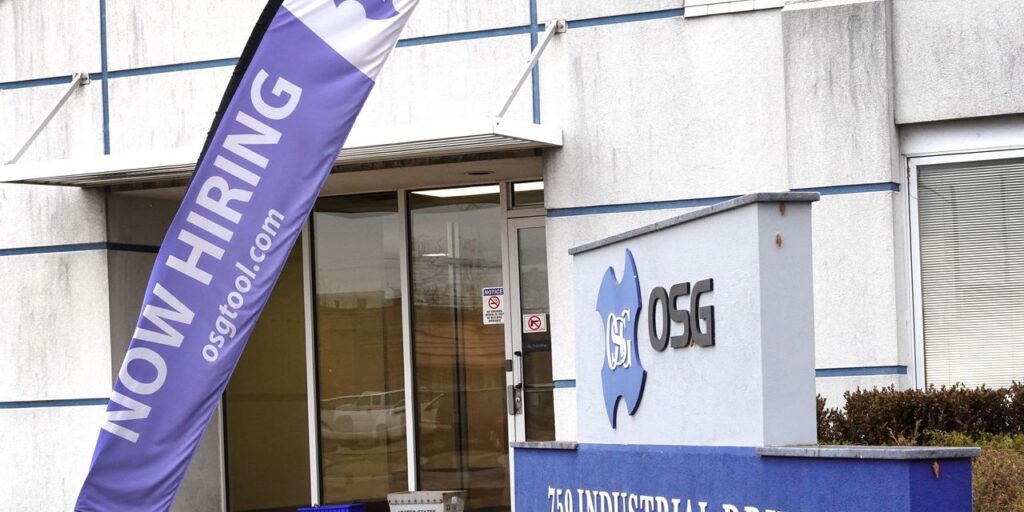The economy was supposed to get a lot weaker, and hiring was supposed to slow to a crawl. Neither has happened. The U.S. is still adding lots of jobs.
Here’s what to watch for in the October jobs report, due out Friday morning.
The forecast
The U.S is expected to add 170,000 jobs in October after a surprisingly large 336,000 increase in the prior month, according to economists polled by the Wall Street Journal.
The Federal Reserve wants to see hiring slow a lot further.
Senior Fed officials believe the economy needs to add no more than 75,000 to 100,000 jobs a month to soak up the new entrants into the labor market, such as graduating students and immigrants.
Revisiting September
The big increase in hiring in September is still viewed as suspect by some economists. They point out the headline 336,000 increase was bolstered by generous seasonal adjustments.
The response rate by businesses to the government’s employment survey has also been unusually low since the pandemic, making the results of the report more volatile.
So there is a decent chance, the skeptics say, that the September number could be lowered, or that the October report could be weaker than expected.
What’s more, the government’s seasonal adjustments don’t always inflate the job numbers. Late in the year, they tend to deflate the employment figures.
“We will note that we’re entering into the time of the year in which seasonal adjustment will insult, not flatter, the headline numbers on many of the economic data releases,” said Richard Moody, chief economist of Regions Financial.
Unemployment rate
The percentage of jobless Americans seeking work is forecast to stay the same at 3.8%, leaving it near the lowest level in decades.
There’s no reason to think layoffs have risen much, if at all. The number of people applying for jobless benefits, for instance, has fallen back to pandemic-era lows and is hovering around 200,000.
So-called jobless claims typically head toward 300,000 when the economy sours.
Wage growth
Average hourly wages are forecast to rise 0.3% in October, a touch faster than in the prior two months. The Fed would prefer slightly smaller increases each month.
The rise in pay over the past year is likely to slow to 4% from 4.2%. That’s also too high for the Fed, but it’s getting closer to the prepandemic trend of around 3%.
If wages rise faster than that without a similar increase in productivity, it could add to rising prices and make it harder for the Fed to douse inflation.
Read the full article here











